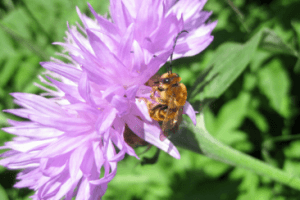June 2020
 Honeybees are critical links in U.S. agricultural production. Pollination by managed honeybee colonies adds at least $15 billion to the value of domestic food harvests annually through increased yields and superior-quality harvests.
Honeybees are critical links in U.S. agricultural production. Pollination by managed honeybee colonies adds at least $15 billion to the value of domestic food harvests annually through increased yields and superior-quality harvests.
About one-third of our diet directly or indirectly benefits from honeybee pollination.
Commercial production of many high-value and specialty crops like almonds and other tree nuts, berries, fruits and vegetables depend on pollination by honeybees. These are the foods that give our diet diversity, color and flavor.
Honeybees are not native to the New World. They were brought here from Europe in by colonists five centuries ago. Many of our crops also came from the Old World and evolved in the same places as honeybees.
There are native pollinators in the United States, but honeybees are more prolific and easier to manage, especially on a commercial level, for pollination of a wide variety of crops.
Managed honeybees have come under serious pressures from many different stresses, which has resulted in beekeepers losing many colonies. USDA scientists, university researchers and other experts are investigating ways of protecting colonies from major losses.
(Courtesy of USDA/ARS)

